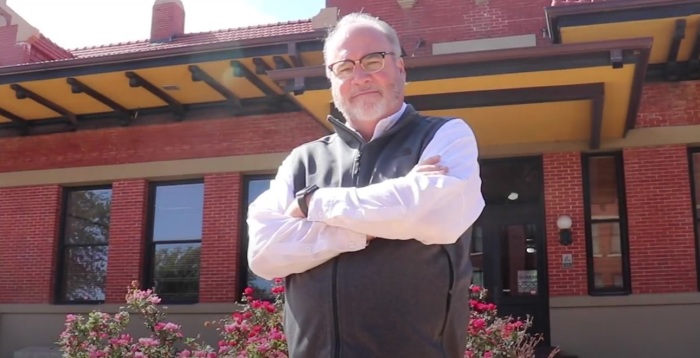
A Texas pastor who ran for a city council seat was recently fined $3,500 after he violated state election law by accepting political campaign donations from churches and posting campaign signs on church property.
Scott Beard, founding pastor at Fountaingate Fellowship who launched a failed campaign for Abilene City Council last year, was found guilty of violating state election codes by the Texas Ethics Commission in May, with the fine executed last month.
According to the TEC’s order and agreed resolution, Beard “failed to disclose the identified in-kind contributions on his campaign finance reports,” “accepted corporate contributions from FountainGate as a candidate,” and “accepted political contributions from other incorporated churches.”
The order also noted that Beard used his church office as a point for distributing campaign signs and buying campaign hats. Authorities allege Beard “knowingly accepted political contributions that he knew were made in violation of the corporate contribution ban.”
The order listed other churches that contributed to Beard’s campaign, including Fountaingate Merkel, Remnant Church of Abilene and Hope 4 Life Church of Abilene, which is also identified as Hope Chapel Foursquare Abilene.
Beard claimed that when he became aware that the churches’ donations constituted “potentially corporate corporations, he returned the money.”
Kristin Postell, an Abilene attorney who filed a complaint with the commission, told The Texas Tribune and ProPublica that she was pleased with the result.
“I don’t think anybody is going to be super cautious about following the rules unless there is a real financial burden to breaking them,” stated Postell.
In addition to the TEC order and fines, some Abilene residents have filed complaints with the Internal Revenue Service, accusing Beard’s church of illegal campaign activity, reported The Tribune and ProPublica.
While Beard’s infractions deal with state law, federal restrictions on church political engagement have been in place for decades.
In 1954, U.S. Congress approved an amendment by then Sen. Lyndon Johnson of Texas to prohibit 501(c)(3) organizations, specifically charities and churches, from engaging in political campaign activity.
Known as the Johnson Amendment, the measure has garnered controversy in recent years, with some arguing that it wrongfully restricts the freedom of speech of religious organizations.
Although President Donald Trump signed an executive order in 2017 calling on the IRS to relax the restrictions of the Johnson Amendment, the measure still remains in effect.







